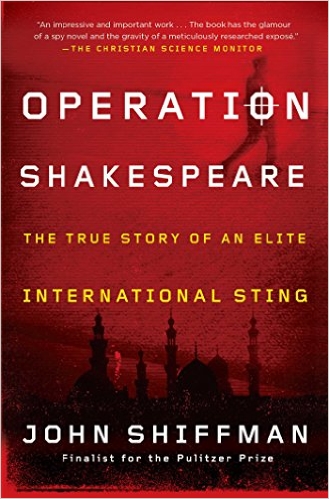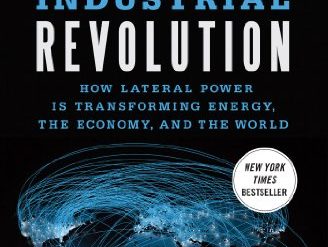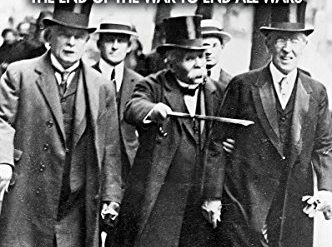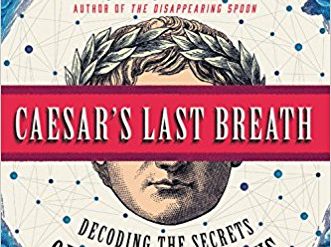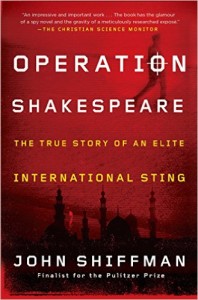
It shouldn’t be surprising that agencies such as the CIA and the Department of Homeland Security would go out of their way to trumpet their prowess by opening the files on their greatest successes to writers hungry for meaty subjects. One recent example is The Billion-Dollar Spy by David E. Hoffman. Another is John Shiffman’s Operation Shakespeare, which is about the capture of an Iranian arms dealer. I find it highly unlikely that either of these books would have been written without special dispensation from the CIA in Hoffman’s case and DHS in Shiffman’s. Both of them gained access to files that would have remained classified for many years.
Operation Shakespeare relates the story of a successful, years-long investigation led by one of the more obscure Homeland Security agencies and the regional Justice Department offices in Wilmington, Delaware, and Philadelphia. It’s truly a remarkable tale. With great skill and astonishing patience, an inter-agency team of investigators and prosecutors captured and persuaded an Iranian arms dealer to confess to his work procuring American military hardware for the Iranian armed forces.
In the process, the man’s cellphone and laptop proved to be a treasure-chest of information about Iran’s military and the many other arms dealers who were similarly getting their hands on embargoed U.S. goods. The dealer’s arrest also closed off one major source of the essential hardware used in building IEDs (Improvised Explosive Devices) by Iranian-backed insurgents in Iraq and Afghanistan. IEDs there killed at least 2,500 U.S. soldiers.
Operation Shakespeare: The True Story of an Elite International Sting by John Shiffman (2014) 289 pages ★★★★☆
The coordination that this project required on the American side alone is staggering, involving several rival government agencies including the FBI as well as Justice and two agencies within DHS — not to mention the essential cooperation of the government of Georgia (the country, not the state), where the arms dealer was arrested before being spirited off to the United States.
The story of Operation Shakespeare, PR effort though it may be, is well worth telling. As Shiffman writes, “Arms and military technology proliferation poses the most destabilizing factor in geopolitics, a greater danger to U.S. national security than terrorism.”
Shiffman gives a clear sense of just how unusual was this success story: “Following 9/11, the CIA created eleven overseas counter-proliferation sting operations similar to Operation Shakespeare. Only one succeeded.” In fact, such efforts were similar to King Canute’s attempt to hold back the sea. Trade restrictions are often adopted in vain: arms dealers and the U.S. and European companies that produce weapons and spare parts are often hungry enough for profits that they’re willing to deal under the table. Many of the biggest American arms manufacturers have been among them and have paid stiff fines as a result.
John Shiffman is an investigative reporter for Reuters and a former staff writer for The Philadelphia Inquirer. Previously, he coauthored Priceless, about the FBI’s success in recovering stolen works of art.
For more reading
This is one of the many good nonfiction books about national security.
You might also be interested in seeing my post, 20 good nonfiction books about espionage. This book is one of the 20.
You may enjoy browsing through 20 top nonfiction books about history.
For more good books on the history of the US, see Top 20 popular books for understanding American history.
And you can always find my most popular reviews, and the most recent ones, on the Home Page.

